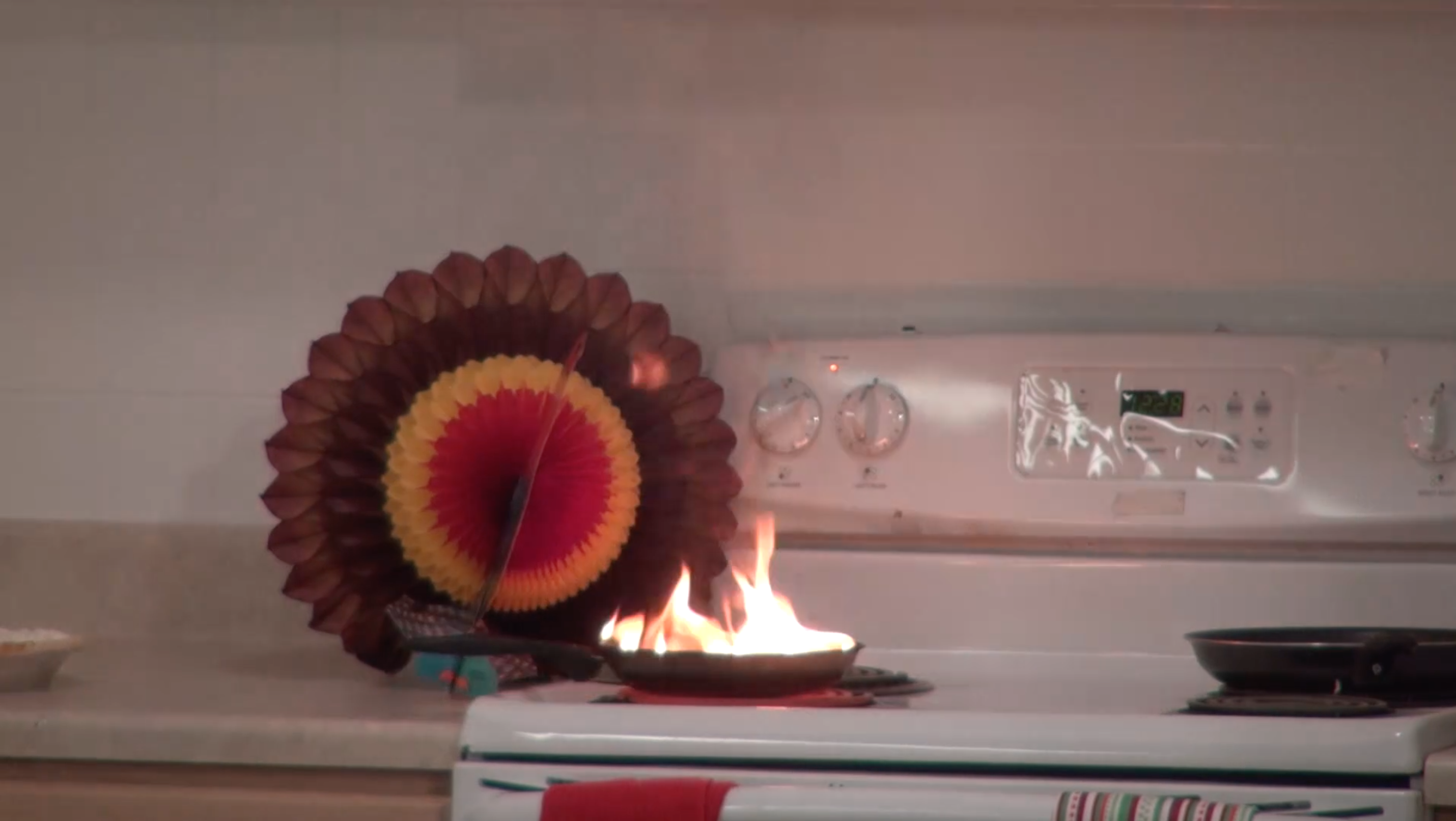ROCKVILLE, Md. — Thanksgiving should be about family, festivities and football – not fires and food poisoning. But if cooks aren’t cautious in the kitchen, this joyful holiday can take a dangerous turn.
And many times, it does. The threat of kitchen fires triples on Thanksgiving, according to the U.S. Consumer Product Safety Commission. From 2009 to 2011, there was an average of about 1,300 cooking fires on Turkey Day, compared with an average of 400 cooking fires a day on other days during the same years.
So whether you’re in charge of prepping the turkey or adding oil to the fryer, follow these government-approved tips to ensure a safe day of thanks.
#1: Stay near the stove
On Thanksgiving, it can be tempting to leave the stovetop to socialize with family. But abandoning the kitchen can be the easiest way to start a fire. Cooktop fires occur most frequently when pans are left unattended, according to CPSC. “It means pay attention to your food,” said CPCS Chairman Elliot F. Kaye during a Tuesday press event on Thanksgiving safety. “Stay with your food when you’re cooking.” Instead of being lured to the TV by the prospect of touchdowns and fumbles, Kayes suggested that family members keep Thanksgiving chefs company in the kitchen.
#2: Take precaution – with your clothes and home
Kitchen fires can easily be avoided so make sure that you take steps to prevent smoke and flames. That means paying attention to everything from clothing choices to home design. If you’re on turkey duty Thursday, make sure you don’t wear loose-fitting clothing or tops with long sleeves. The U.S. Fire Administration also recommends identifying two ways to exit every room in your home as well as equipping every level with a working smoke alarm.
Have a plan in place in case disaster strikes. Glenn Gaines, deputy U.S. fire administrator, advised deciding on a place to meet family members outside. “When you get out, stay out,” he said. “Dial 911 and let the professionals handle it.”
#3: Use a lid – not water – to smother flames
If a stovetop fire does ignite, don’t pour water or flour on the flames. We might see it being done in the movies, but water and grease don’t mix, and H20 will only make the flames worse. Instead, the USFA recommends covering the pan with a lid and keeping it on until it’s cool.
#4: Beware of the turkey fryer
Although turkey fryers can turn the bird into a delicious, crunchy treat, the USFA warns that they can be dangerous. “Turkey fryers are safe if they’re used properly, yet these devices can create a disaster when not used according to manufacturers’ instructions,” Gaines said.
To be safe, put the fryer outside, away from buildings and other flammable material. Never place it in a garage or porch. Also, don’t overfill the fryer with oil or it can lead to spillover. Water can also cause spillover, so make sure the turkey is completely thawed (the National Turkey Federation recommends a 24-hour refrigeration period for every five pounds) before dumping it into the fryer.
#5: Stay sanitary
Fire isn’t the only concern. Clostridium Perfringens, found on raw meat and poultry, is a bacteria that can leave you running for the bathroom if precautions aren’t taken. According to the U.S. Centers for Disease Control and Prevention, it’s the second most common bacterial cause of food poisoning, and most outbreaks occur in November and December.
To avoid this holiday hazard, follow the four key food safety steps: 1) Clean hands and utensils before preparing foods 2) Separate raw meats from other foods to avoid cross-contamination 3) Cook the turkey at 165 degrees and 4) Chill the leftovers within an hour.

